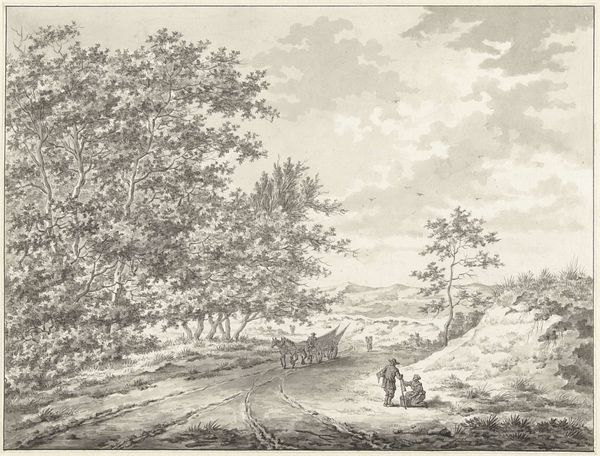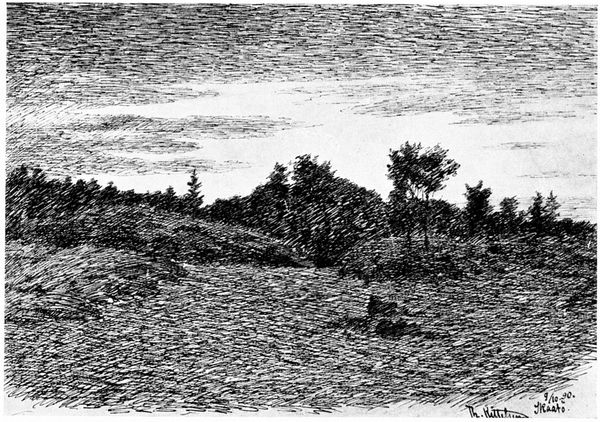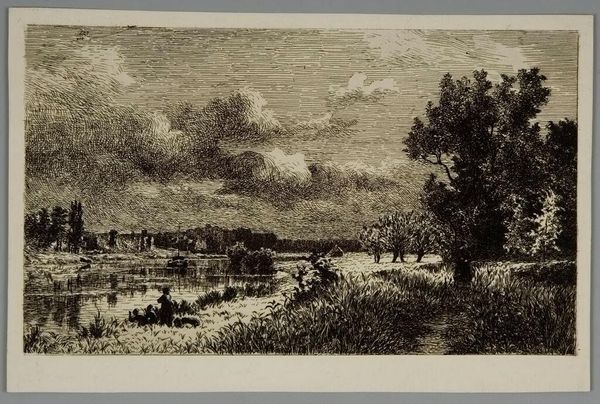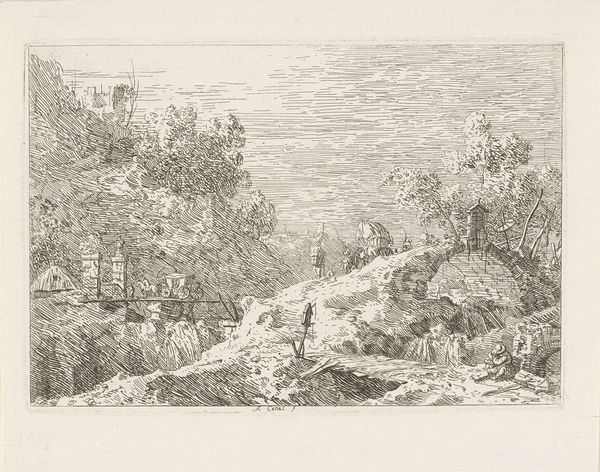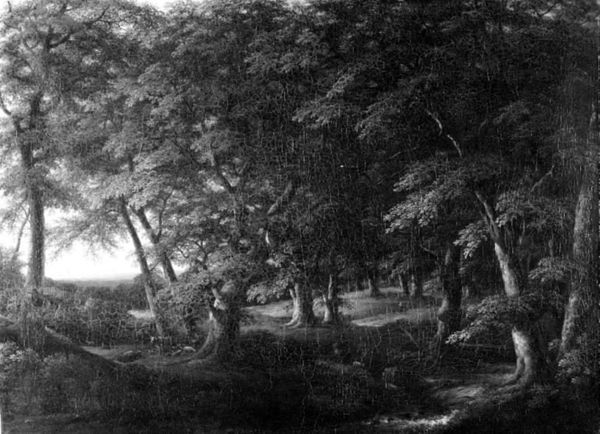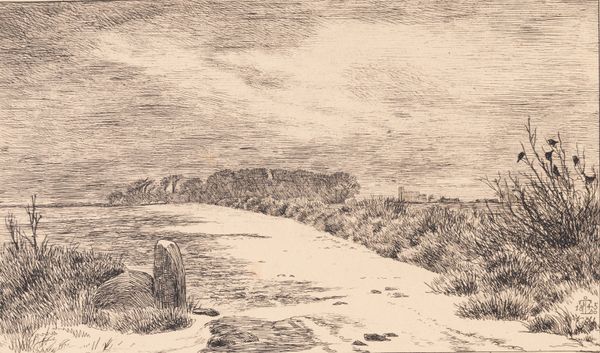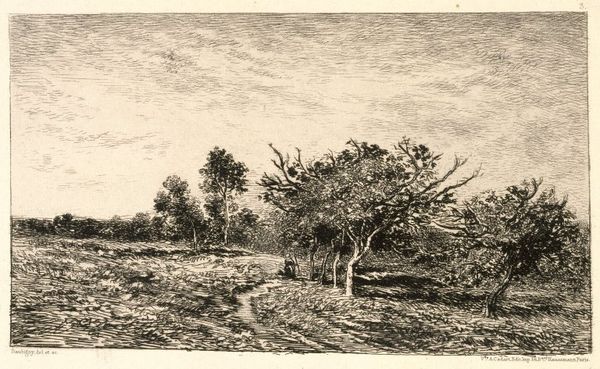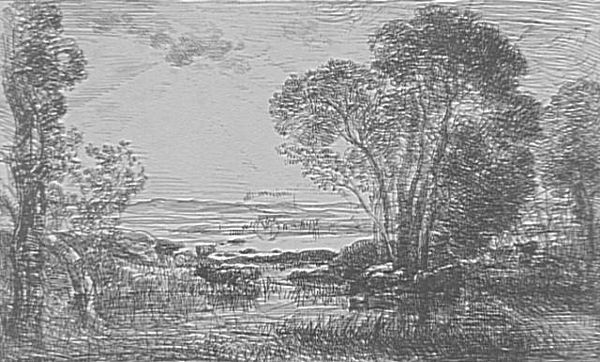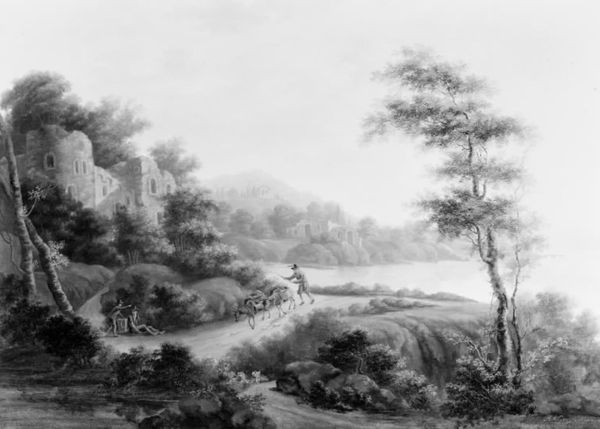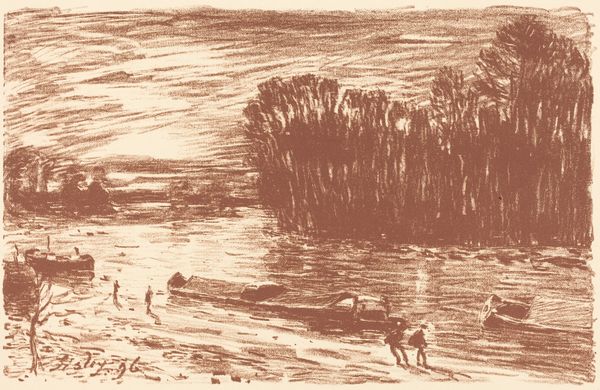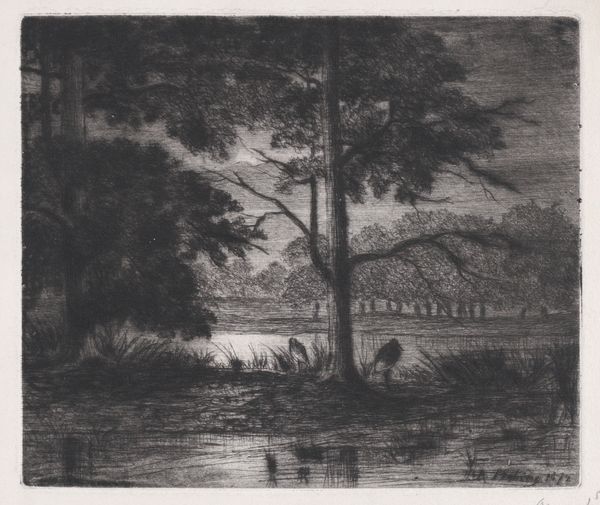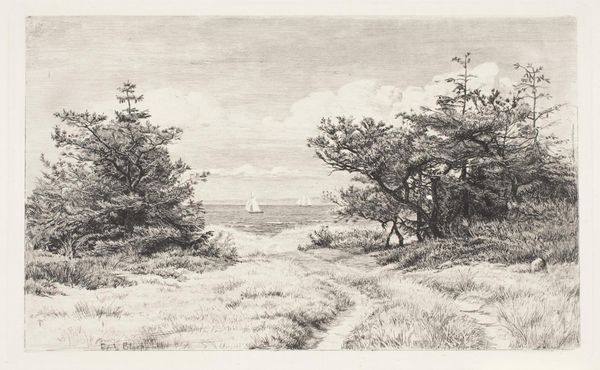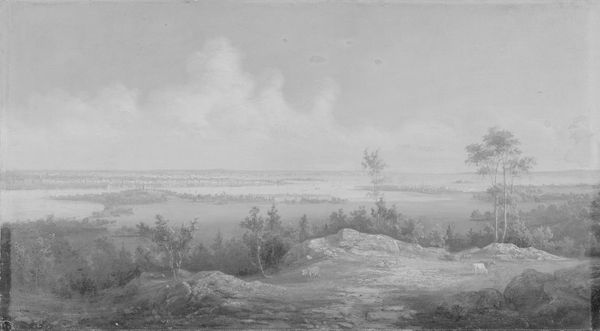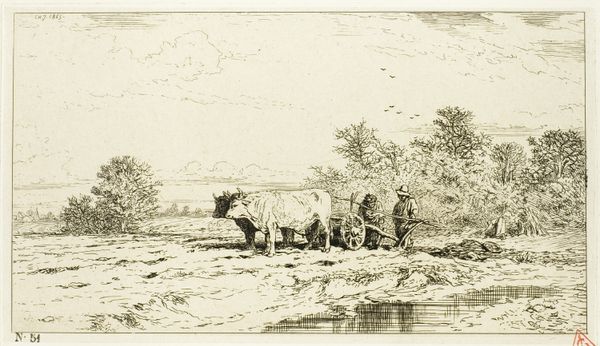
etching, plein-air
#
impressionism
#
etching
#
plein-air
#
landscape
#
river
Dimensions: 13.3 x 21.6 cm
Copyright: Public domain
Curator: I'm immediately struck by the raw texture here. This etching by Charles-François Daubigny, "Fisherman on River with Ducks," from 1878, has such a wonderful material presence. You can almost feel the rough surface of the paper, see the deliberate mark-making in its landscape forms. Editor: Yes, and those ducks bobbing along seem to have an innate peaceful quality, or innocence. The overall imagery has a slightly melancholic yet timeless, universal symbolism to it; as in, "man in nature". Curator: Etching really lends itself to that, doesn't it? The way the artist works the plate with acid to create depth gives a rich tonal range to the composition. Daubigny was a pioneer of plein-air painting and printmaking and his exploration of light in natural scenes is on display here. This isn’t just a landscape; it’s an investigation of natural forms through a very specific production process. Editor: It's a contemplative investigation, really. We could certainly look to a Christian allegorical symbolic understanding; for instance, the Fisherman is Christ as the fisher of men and the Ducks are the innocent people that are caught up in the path of righteousness. Also the clouds bear marks of judgement. I sense the mood reflects a premonition in facing what's ahead and what could come to be. Curator: Interesting take. I’m curious about how his commitment to working outdoors affected his materials, not only the immediacy and simplicity of the image. Did he use portable etching equipment or rework sketches later in the studio? What constraints or freedoms did the weather and the setting impose? It's compelling to see "nature" mediated through an industrial process and consider the conditions of production and Daubigny’s labour. Editor: The labor, the process becomes like a symbolic performance, where materials are the media by which these meanings are delivered. Looking at the density of details; the reeds, the waterlines, I believe he thought extensively about water representing our conscious stream and path through existence, where even the subtlest marks take on deep psychological meaning. Curator: I see what you mean! Thinking of Daubigny's time and considering how industrialisation and consumerism impacted artistic practice, looking at "Fisherman on River with Ducks," brings up fascinating tensions between manual production and modern modes of working in nature. Editor: Definitely, considering nature from his moment in history provides for very moving meditations in our present moment. Curator: Indeed! And for me it sparks interest in the very nuts and bolts of its making.
Comments
No comments
Be the first to comment and join the conversation on the ultimate creative platform.
